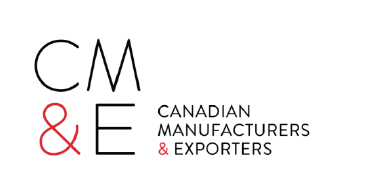
Nine out of ten manufacturers experiencing supply chain disruptions: report
Maryam Farag
Economy Government Manufacturing Business Canada Canadian Manufacturers & Exporters CME COVID-19 Economy government manufacturer manufacturing Report supply chain supply chain disruptions Survey trade US
Photo: CME.
A new member survey by Canadian Manufacturers & Exporters (CME) shows that nine out of 10 Canadian manufacturers are encountering supply chain issues, with over 60 per cent rating the impact of these disruptions as either major or severe.
Canadian manufacturers surveyed say they have lost about $10.5 billion in sales because of disruptions in the supply chain and are now experiencing nearly $1 billion in increased costs.
“Our survey confirmed what we’ve been hearing from manufacturers on the ground for a long time. Demand for manufactured goods is strong but we are increasingly unable to keep up let alone take advantage of this boom. Labour shortages, supply chain challenges and higher input costs are big problems. If we don’t address these, Canada’s economy will suffer,” said Dennis Darby, President and CEO, CME.
Main highlights of survey include:
- Eight out of ten manufacturers facing supply chain challenges say they have been forced to increase prices and delay fulfilling customer orders.
- 18 per cent of manufacturers plan on sourcing more of their inputs to Canada in response to these disruptions and, when asked why, 44 per cent cited the fact that there are no Canadian suppliers of their critical inputs.
- Just 28 per cent of manufacturers said they are likely or very likely to relocate or scale-up production in Canada to mitigate supply chain bottlenecks, with the availability and cost of labour as the biggest hurdles to relocating or scaling-up production in Canada.
- Most manufacturers predict that these disruptions will not end this year, but rather some time in 2023 or even as late as 2024.
“Manufacturers have been feeling supply chain pressures for months now as a result of the COVID-19 pandemic,” said Darby. “Omicron, the flooding in B.C., the trucker vaccine mandate, and border blockades have all added to the crisis.”
Darby asked the government to:
- Address all transportation bottlenecks and avoid policies that will aggravate them further.
- Speed up immigration into Canada to fill vacant jobs in manufacturing and other key sectors.
- Provide more support to help manufacturers accelerate the adoption of automation technologies.
- Increase investments in infrastructure that facilitates trade and industrial development.
- Lead and support a comprehensive supply chain mapping of Canada’s domestic capacity of strategically important intermediate and final manufactured goods.
